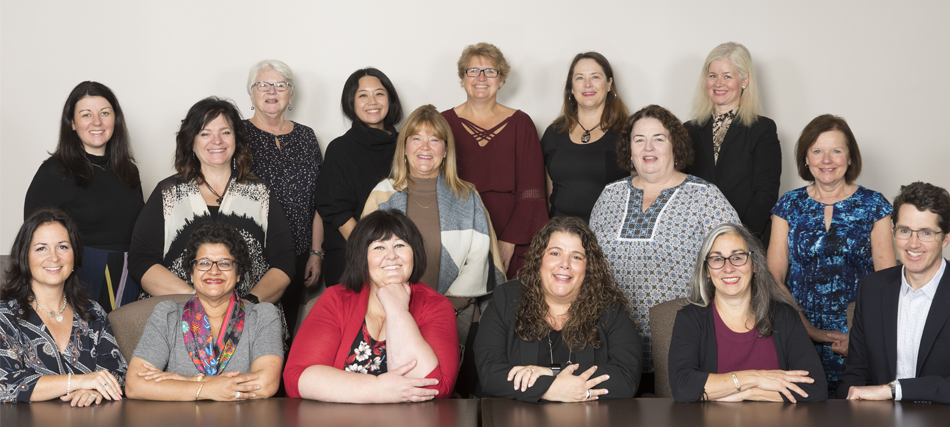Employer Newsletter – Winter 2020

2018-19 Annual Report now available online
The annual report for the College’s July 2018 to June 2019 fiscal year has been published online. The report highlights the achievements of Council, its committees, and staff.
Noteworthy highlights
- As of June 30, 2019, we had 53,756 registered members
- We launched My College Account so members can renew online, and those looking to apply to the College can do so online
- Subject Matter Advisors from the membership contributed to projects like the #StandardsinPractice campaign and the Practice Guideline on Inclusion of Children with Disabilities, as well as the
Practice Guideline on Professionalism - We updated membership demographic information. Did you know that 57% of our membership works in Licensed Child Care?
We invite you to check our annual report.

Mandatory Employer Reports
Employers play a crucial role in protecting the safety of children and their families; filing Mandatory Employer Reports (MER) with the College is one way of doing so. Once a MER is received, the College carefully reviews and considers the information provided.
Resources for Employers
The College’s bulletin Mandatory Employer Obligations helps you to understand when to file a MER with the College. The College has also created a downloadable MER form, accessible on the College’s website. As part of the legal reporting requirement, all relevant information and supporting documents that should be included in the submission of the MER.
Why Is the College Asking for These Details?
- Employer’s Information – The College needs to be able to contact you in the event that it needs further information and also to provide you with any decisions the College makes.
- Parent Contact Information – Sometimes the College needs to obtain information directly from the parent.
- Incident(s) Information – This section is
key. It helps the College understand your concerns or what was involved in the incident. Without it, the College cannot assess the potential risk of harm to children or determine what, if any, action(s) it ought to take. - Actions taken – This is also important for the College to know when assessing risk. For example, it may be important for the College to know if you placed restrictions on the member’s practice or their employment has been terminated.
- Prior Concerns – Another aspect in assessing risk is whether the concerns relate to an isolated incident or suggest a pattern of practice/behaviour.
- Additional Contacts – The College needs to identify potential witnesses or people who may have information about the concerns or incident. This could include details of any relevant agencies (such as the Ministry of Education, Children’s Aid Society or police) that may have been involved.
- Supporting Documentation – Supporting documentation can include workplace policies, e-mails, occurrence reports, video footage, photos, diagrams, internal investigations and documents received from other agencies (such as the Ministry of Education, Children’s Aid Society or police). This documentation helps the College understand the situation faster and reduces the frequency in which the College may need to contact you.
An accurate and complete MER, with supporting documents, greatly improves the College’s ability to review and consider MERs in a timely and efficient manner. It also helps ensure that the public is protected.
Have questions about the report, or are unsure if you need to complete it after a specific incident has occurred? Email us at discipline@college-ece.ca

Membership fee receipts are now accessible online!
Members can now access receipts online in the My College Account portal after they have paid their annual renewal fee. Should you require a copy as proof of registration / renewal, ask staff to print you the receipt or click here to check the public register.

Continuous Professional Learning for RECEs
In our last issue, we published an overview of the College’s Continuous Professional Learning (CPL) program. Here is the article.
In this continuation, we want to highlight some of the ways that employers can support staff in their ongoing professional learning in relation to the CPL program.
Ongoing professional learning doesn’t have to happen through traditional coursework or workshops; there are other useful learning activities such as a reflective practice journal, webinars, presentations, books, job shadowing and participation in communities of practice. Each of these can help guide and strengthen an RECE’s practice.
If it’s not in the budget for staff to attend paid conferences or workshops, here are some additional ideas for professional learning activities, some of which may be free of cost:
- Provide a library of books relevant to the practice of early childhood education and the early years sector.
- Read and discuss relevant articles, practice resources and research.
- Offer information from your own professional learning that might be useful to share with the team.
- View live or pre-recorded webinars as a team. The College has many, as do other associations and organizations.
- Encourage collaboration – each CPL portfolio is unique; some RECEs may be interested in developing or strengthening leadership skills, while others may want to learn about ways to increase their knowledge of strategies that promote positive interactions with children. Encourage staff to share their learning goals: While not required by the CPL program, it can increase opportunities for collaboration and mentorship among staff, and give you an opportunity to collaborate with them by providing guidance, sharing experiences or providing suggestions on activities, readings or other professional learning activities.
Interested in seeing examples of CPL portfolios? Check out the resources we’ve developed that outline the portfolios of RECEs in different practice settings and career stages. You can find those portfolios here.

All about Council
The College of Early Childhood Educators is governed by a 24-member Council. Of those Council members, 14 are RECEs elected by members of the College and the remaining 10 are members of the public appointed by the Ontario government. The College’s mandate is to regulate the profession of early childhood education in the public interest, and the composition of Council ensures that the expertise of members of the profession as well as the perspective of the public are at the table and included in all decisions.
What does Council do?
Council governs the College through the oversight of policy development and approval of by-laws for the College. Council establishes the strategic direction of the College and makes decisions related to entry to practice requirements, ethical and professional standards, and professional misconduct, incompetence and incapacity.
Each Council member has the opportunity to serve on a variety of Committees that are integral to the College’s regulation of the profession. Through effective governance and upholding the standards of the profession, Council members protect the public interest and support professionalism and leadership in the early learning and care.
Elections in Districts 1, 2 and 6
On March 16, 2020, voting opens to elect new members to Council in District 1 (North and North East Region), District 2 (East Region), and District 6 (Central West Region).
If you’re located in District 1, 2 or 6, encourage your RECE staff to vote! Voting takes minutes and the process is online so ballots can be cast on a smartphone, tablet or computer. It’s a member’s opportunity to help choose the people who oversee the regulation of their profession.
CLick here learn more about College’s Committees.
What are the Electoral Districts? Find out.